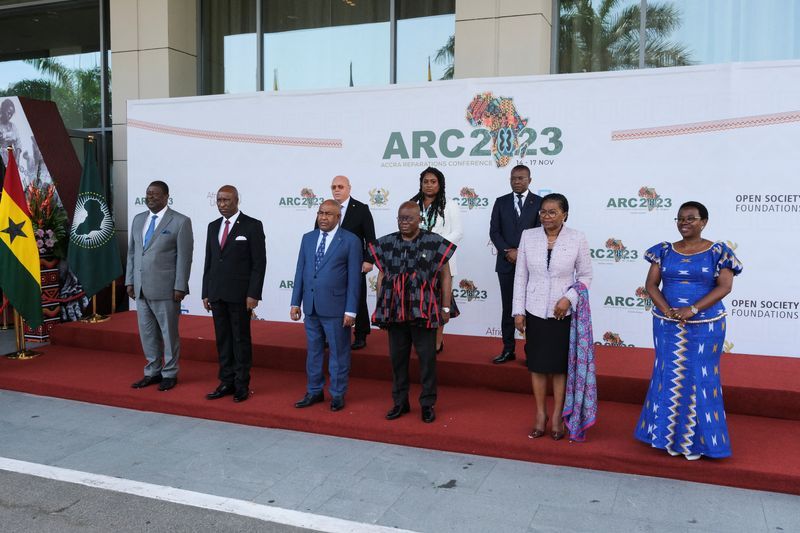(Reuters) – Support is growing among Africa and Caribbean nations for the establishment of an international tribunal dedicated to addressing atrocities committed during the transatlantic slave trade, with the United States endorsing a U.N. panel at the core of this initiative. A tribunal, inspired by other ad-hoc courts like the Nuremberg trials of Nazi war criminals after World War Two, was first proposed last year and has gained momentum within the broader reparations movement, as per Reuters interviews with several individuals.
The concept of a tribunal was formally put forward in June by the U.N. Permanent Forum on People of African Descent. Eric Phillips, a vice-chair of the slavery reparations commission for the Caribbean Community (CARICOM), which comprises 15 member states, has stated that the idea has been further examined at regional bodies in Africa and the Caribbean.
Although the specifics of the tribunal’s scope are yet to be determined, a preliminary report from the U.N. Forum suggested that it should address reparations for enslavement, apartheid, genocide, and colonialism. Advocates within CARICOM and the African Union (AU), which brings together 55 nations on the continent, are currently working to gain more widespread support for the proposal among U.N. members.
Proponents argue that a special U.N. tribunal would help set legal standards for intricate international and historical reparations claims. Opponents of reparations raise concerns about contemporary states and institutions being held accountable for past slavery, among other issues.
Acknowledging the challenges involved, Martin Okumu-Masiga, Secretary-General of the Africa Judges and Jurists Forum (AJJF), which offers reparations-related advice to the AU, highlighted obstacles such as securing the cooperation of nations involved in the slave trade and navigating the legal complexities of identifying responsible entities and determining appropriate remedies.
The existence of historical records and evidence from many years ago can pose significant challenges in this regard, Okumu-Masiga added. Unlike the Nuremberg trials, there are no living individuals directly connected to transatlantic slavery.
In response to the tribunal proposal, a spokesperson for the British Foreign Office acknowledged the nation’s role in transatlantic slavery but indicated that there are no plans for reparations payments. Advocates argue that Western countries and institutions that continue to benefit from the proceeds of slavery should be held culpable, particularly in light of persistent racial discrimination legacies.
Racism, poverty, and economic underdevelopment are all tied to the enduring repercussions of transatlantic slavery in regions ranging from the United States to Europe and Africa, as per U.N. studies. These repercussions continue to be felt in various aspects of life, including housing, education, and health inequalities.
At a reparations summit in Ghana in November, attended by leaders from Africa and the Caribbean, the tribunal proposal was deliberated upon. The summit concluded with a commitment to explore legal avenues, including potential litigation strategies. Nigeria’s Foreign Minister Yusuf Tuggar expressed the nation’s support for the tribunal initiative in February, stating that Nigeria would back the idea until it becomes a reality.
Prime Minister Dickon Mitchell of Grenada, where hundreds of thousands were enslaved, is also in full support of the tribunal, according to a spokesperson who described it as a CARICOM-led effort. Phillips emphasized that efforts to establish the tribunal must be conducted within the United Nations system and involve discussions with countries such as Portugal, Britain, France, Spain, the Netherlands, and Denmark, which participated in the trade of enslaved people.
Justin Hansford, a Howard University law professor supported by the U.S. State Department to serve at the U.N. forum, is one of the tribunal’s most vocal proponents. He intends to raise the topic for further discussion during the forum’s upcoming third session in April, which is expected to garner participation from 50 or more nations. Hansford plans to advocate for increased support for the proposal during the U.N. General Assembly in September, with the ultimate goal of achieving sufficient backing by 2025.






